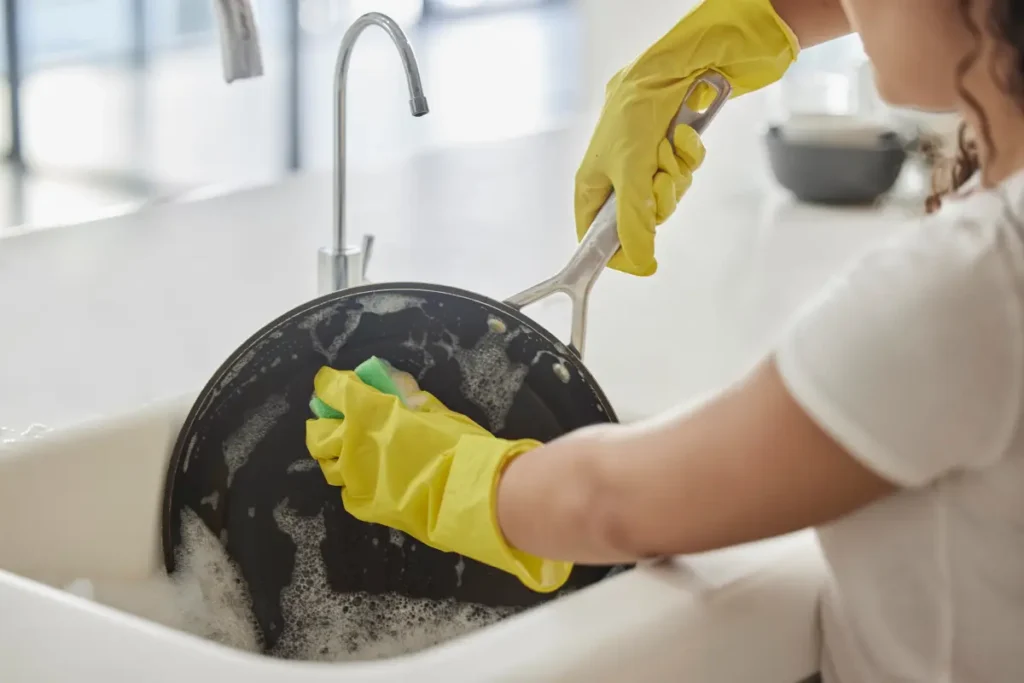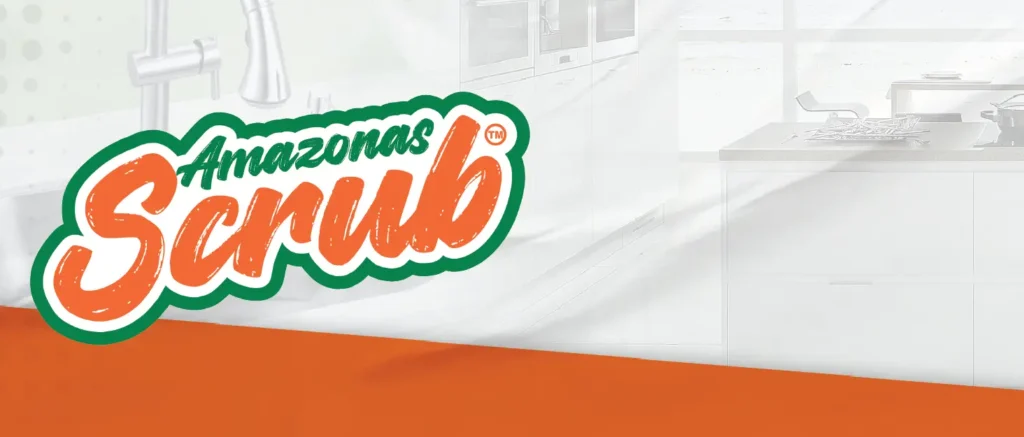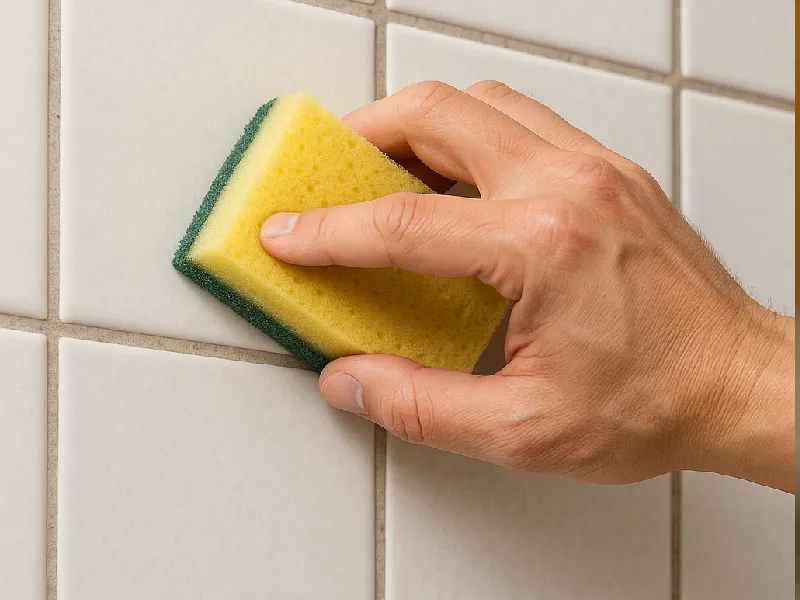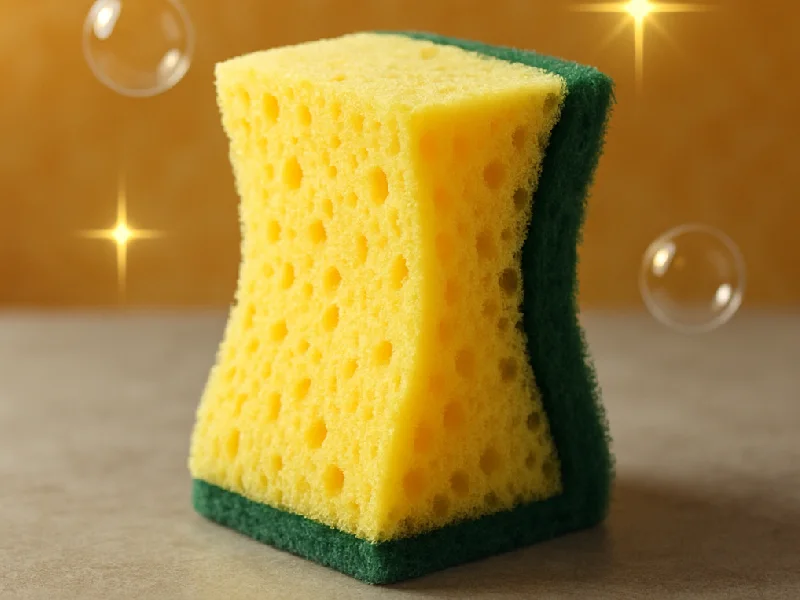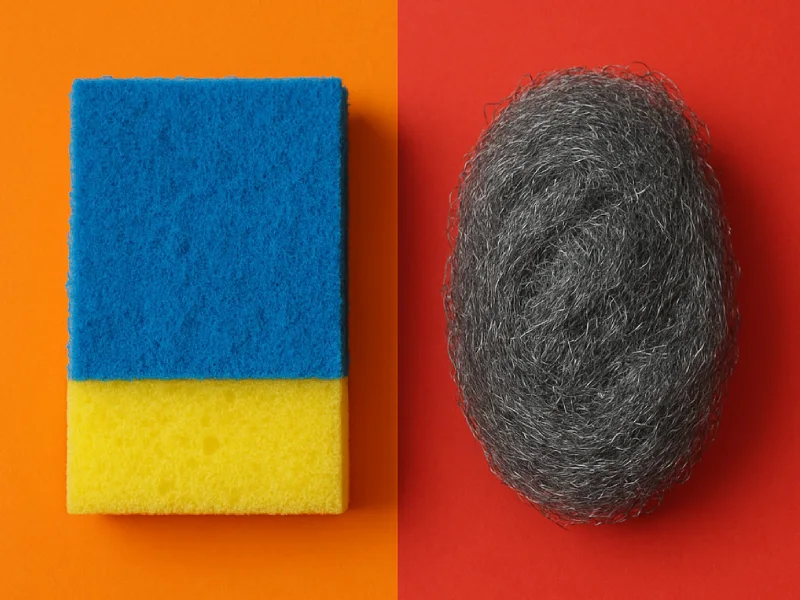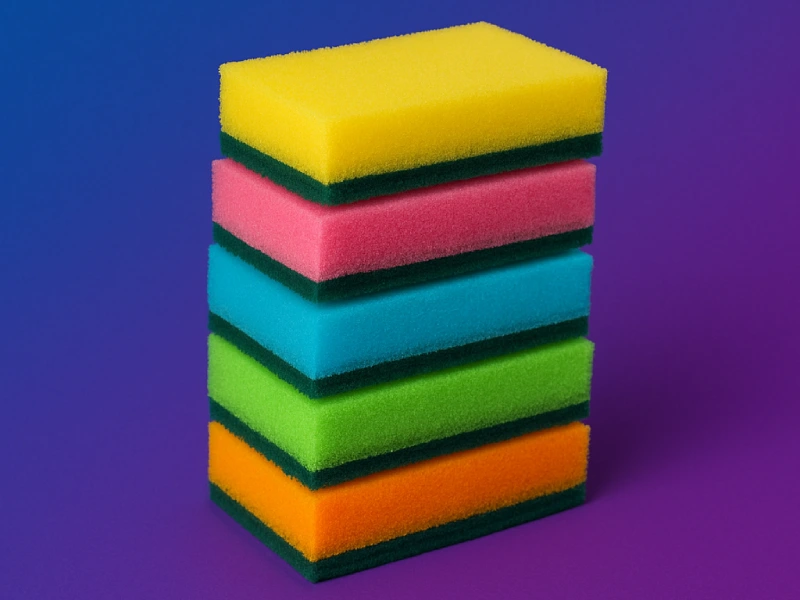When it comes to your beloved cookware, encountering burnt pans can be a real headache. But fear not! We’ve curated expert tips to salvage your pots and pans, making them shine like new.
Say goodbye to stubborn burnt residue and welcome back the gleam of your kitchen essentials.
Understanding the Culprit: Why Do Pans Burn?
Before we delve into the cleaning process, it’s crucial to understand why pans burn in the first place. High heat, forgetfulness, or using the wrong oil are common culprits.
When food particles get excessively heated, they form a hard, stubborn layer, making cleaning seem impossible.
The Magic of Baking Soda and Vinegar
One of the oldest and most effective tricks in the book involves the power duo: baking soda and vinegar. Mix these two household items to form a paste and generously apply it to the burnt areas.
Let it sit for a few hours or overnight.
The alkaline nature of baking soda and the acidity of vinegar work wonders in breaking down the burnt residue.
The Citrus Solution
Citrus fruits, particularly lemons, are nature’s cleaning marvels. The high acidity in lemon juice helps dissolve burnt-on stains.
Squeeze fresh lemon juice onto the burnt surface and let it sit for about 20 minutes. The acid will soften the burnt particles, making them easier to scrub off.
Invest in a Quality Pan Soak
For pans with severely burnt bottoms, consider investing in a quality pan soak solution. These specially formulated products are designed to break down tough stains without damaging your cookware.
Follow the instructions on the label, and you’ll be amazed at how effortlessly the burnt residue lifts off.
The Gentle Touch of Salt
Salt isn’t just for seasoning your dishes; it’s also an excellent natural abrasive cleaner.
Sprinkle a generous amount of salt onto the burnt surface, add a few drops of water to make a paste, and gently scrub with a soft sponge.
The salt acts as a gentle abrasive, helping to lift the burnt particles without scratching the pan.
Transitioning to Prevent Future Mishaps
Prevention is always better than cure. To avoid burnt pans in the future, consider using oils with high smoke points like canola or grapeseed oil.
Also, keep an eye on your heat settings; using medium heat prevents excessive burning. Lastly, never leave your pans unattended while cooking, ensuring you catch any signs of burning before it becomes a major issue.
In conclusion, rescuing your cookware from burnt nightmares is entirely possible with these expert tips. Remember, patience and the right techniques go a long way. Say goodbye to the frustration of burnt pans and hello to a kitchen filled with gleaming, spotless cookware!

